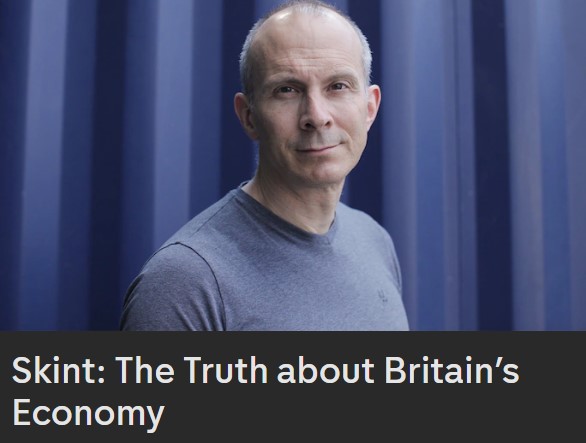By Mark Langabeer, Hastings and Rye Labour Member
Many economists, especially those on the left, have pointed to the wealth of this country and asked why there is such rich potential alongside unprecedented poverty. This was the subject of a recent Channel 4 documentary, presented by Tim Harford, a Financial Times economist and the presenter of the BBC Radio 4 programme More or Less.
Harford travelled to Hastings, where he interviewed many people, like a hotel owner who reported that nowadays, even during the ‘high season’, his place was half empty. Harford reported that in Hastings, a quarter of all children are growing up in poverty and there are around 500 people living in temporary accommodation.
But, the programme reported, Hastings is not alone, and in fact it is representative of the UK as a whole. In 2010 there were 2.5 million on hospital waiting lists, and now it stands at 7.5 million, three times more. Like other economists, Hartford compared Britain with the US and countries in the eurozone and the US. Comparied to the other G7 countries, he noted, economic growth in the UK has flatlined and we are falling further behind.
Liz Truss: unfunded tax cuts spooked the financial markets
Harford suggests that Britain’s stagnate economy dates back to the financial crash of 2008, noting that growth rates were roughly 2% a year until then. He estimates that if growth rates had continued at the same rate since,, it would be equivalent, on average, to an increase of £10,000 a year for each worker.
He also reminded us that although Liz Truss was right to identify Britain’s poor growth as a key problem, her unfunded tax cuts spooked the markets so much that it resulted in higher interest rates and mortgages for millions of working households. It was a hit from which they still haven’t recovered.
Harford put forward solutions that lay elsewhere, arguing that austerity measures have meant a steep decline in the quality of British infrastructure, During the 1960s, around 10% of all government spending was on building infrastructure, but that figure has fallen to only 3%. A sizeable city like Leeds, for example, has no mass transit system, while most other European cities of a comparable size all have trams or underground systems.
The programme also focused on the problem of housing. Whereas it is estimated that at least 654,000 are needed to be built annually, the current annual figure for house building is less that 250,000. Harford argued that planning laws needed changing and up to 2% of green belt located near train stations. He cited the example of Cambridge, a city which attracts atttacts investment in new technologies, but where development is held back by a lack of infrastructure and house building.
Finally, Harford dealt with AI, as both a’ threat’ and an ‘opportunity to increase productivity’. Many professional jobs, he pointed out, could be replaced by AI in time and he compared it to the rise of new industries of the past, alongside the decline of others like weaving and coal mining. He talks about ‘winners’ and ‘losers’ in terms of jobs and skills, argueing that it is inevitable that new skills should replace the old.
A system based on greed, profits and the enrichment of a few
Overall, Harford’s analysis of Britain’s economic problems is correct and it is something highlighted often in articles on this website. Britain’s decline stems essentially from a lack of investment, leading to low productivity. However, he never explains why there is such a failure to invest – the obvious unmentionable reason (for an FT economist) being the lack of profit. What is to blame are not minor problems in planning laws, but capitalism, an economic system based on greed, profits and the enrichment of a handful of the already-rich and super-rich,
In relation to housing, for example, planning has never been the main problem. There are many building schemes which already have planning permission, but which have simply not gone ahead, because it is not profitable for builders and developers. These big companies prefer to deliberately manufacture a shortage to keep prices higher, rather than satisfy a national need for new housing.
It is all very well, as Harford does, calling for more investment, but on the basis of capitalism, the question has to be asked, where will the resources come from? It is reported that the UK government’s National Debt stands close to 100% of Gross Demestic Product and as Liz Truss found out, the ‘markets’ will not take kindly to further ‘unfunded’ borrowing.
The Liz Truss fiasco also revealed that the real decisions about government spending are made outside of government. Effectively, most decisions on investment are made in the boardrooms of the private sector and are based around the prospect of making a profit.
This will be the case as long as private finance and banking companies are allowed to dominate the economy. Only public ownership of the major companies and the financial system could provide the resources that are needed to prevent further economic decline.
The Channel 4 programme is available to watch on catch-up here.
See article by Marxist economist, Michael Roberts on ‘Broken Britain’ here.



